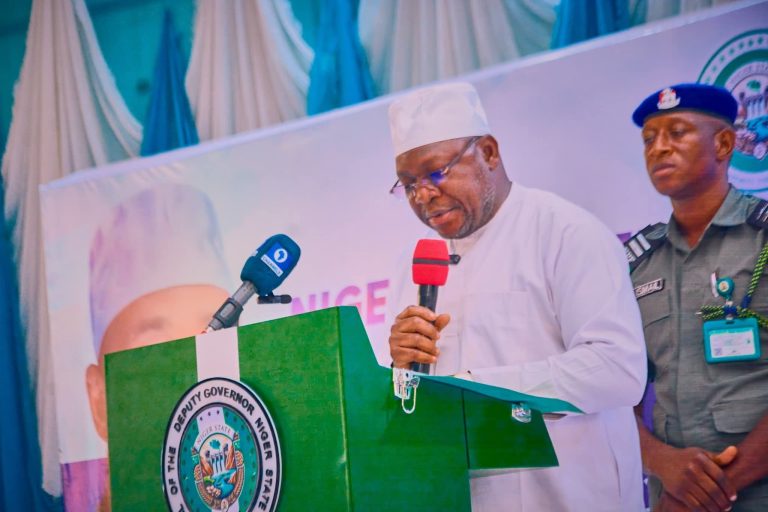The Niger State Government has called for stronger global commitment and coordinated action to tackle escalating climate challenges threatening economies and communities worldwide.
Deputy Governor Yakubu Garba made the appeal in an interview with journalists on Thursday.
Garba said climate action in Niger State is not only a local priority but also a vital contribution to Africa’s broader climate commitments.
“Investing in Niger means investing in the resilience of over six million people, in food security, and in the protection of critical ecosystems that sustain Nigeria’s environmental balance,” he said.
Describing Niger State as a land endowed with rich natural resources, fertile agricultural landscapes and a population determined to build a sustainable future, Garba said the government’s Green Sustainable Agenda integrates climate action across key sectors including agriculture, forestry, energy, water resources, waste management and livelihoods.
He noted that the state’s roadmap aligns with Nigeria’s Nationally Determined Contributions (NDCs) and Africa’s call for equitable climate finance and fair partnerships.
Garba, however, said that despite ongoing efforts—such as renewable energy initiatives, afforestation programmes, climate-smart agriculture, and youth-led waste-to-wealth enterprises—financial constraints continue to limit the scale of interventions.
He urged development partners, climate funds and private investors to support Niger State through concessional finance, carbon market access and blended financing mechanisms.
Garba also stressed the importance of technology transfer and innovation in advancing low-carbon development, adding that youth participation remains central to the state’s green transformation.
“Niger seeks collaboration with research institutions, development partners and climate investors to promote clean energy, digital climate information systems and modern agricultural technologies,” he said.
According to him, empowering young people with the right tools, training and technologies will create jobs, boost green entrepreneurship and strengthen climate-smart value chains.
“Niger is seeking partnerships to establish green innovation hubs, renewable energy clusters and digital monitoring systems for effective climate-action tracking,” he added.
Garba cited the direct impacts of climate change on local communities, including unpredictable rainfall, floods, droughts, desert encroachment and declining crop yields.
He said the state has already initiated community-based adaptation programmes that integrate indigenous knowledge with modern scientific solutions, including land restoration projects, irrigation support and early-warning systems for farmers.


